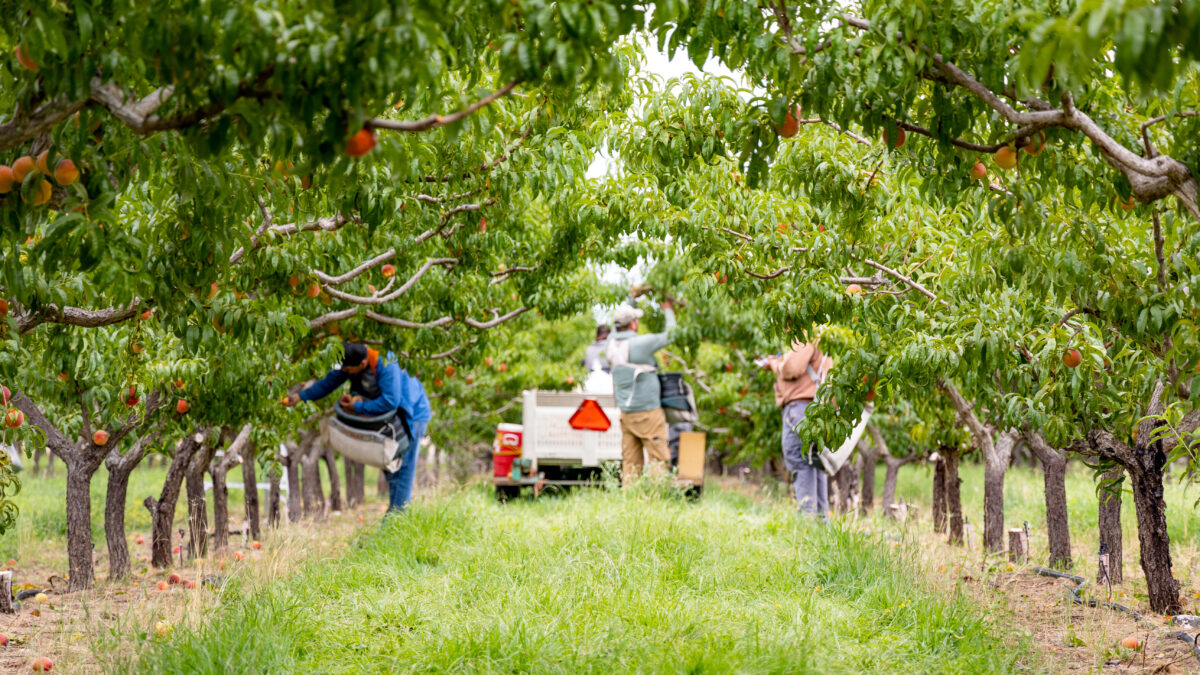Another Year of Farm Labor Shortages
TOPICS
Labor ShortageZippy Duvall
President

photo credit: Colorado Farm Bureau, Used with Permission
Zippy Duvall
President
As we enter mid-summer, many of our favorite foods are ripe and ready for harvest. There’s fresh corn, fruits and vegetables, peas and beans, and more—all ready to be picked and enjoyed now or preserved for later.
What may not be ready is a workforce that’s available when crops need picking. We are entering yet another harvest season with no solution to agriculture’s labor shortage. Every year, there are stories about farms that didn’t get workers in time to harvest crops when they were ready. I’m sure we will be hearing more of those stories this summer and fall.
Farmers and ranchers in every state tell me that the shortage of labor is the greatest limiting factor on their farms. They try to hire American workers, but there are not many takers—and those who do take farm jobs often quit before the season is over.
Farmers and ranchers in every state tell me that the shortage of labor is the greatest limiting factor on their farms.
What farmer in his right mind is going to invest in expanding the farm if he doesn’t even know if he can harvest what he already produces? It impacts plans for passing the farm on to the next generation. It impacts decisions about whether to continue farming. The bottom line: it affects how much of our food will be grown in our own country. I’ve often said that we are getting to a point where Americans have to decide if we’re going to import workers or import our food.
The number of farm workers hired through the H-2A visa program for seasonal agricultural workers has more than doubled in the past five years. Even with the increase, last year’s 243,000 H-2A workers filled just a fraction of the more than 2.4 million farm jobs.
So why don’t more farmers use the H-2A program? It’s expensive and inefficient. Don’t get me wrong: we’re glad to have an agricultural guestworker program. But we need that program to work much better than it does now.
H-2A requires farmers to pay above-market wages on top of providing free housing and transportation to and from the farm. At that rate, it’s difficult for a farmer to make ends meet.
Then there are the delays farmers often experience in getting workers. If it takes too long to process an H-2A application or if the farmer makes the slightest mistake on the paperwork, workers might not arrive in time—and every day of delay matters when crops are ripe.
Finally, H-2A is a seasonal worker program, giving year-round producers almost no options.
An even bigger issue is the undocumented workers who are filling the gaps. It has been estimated that anywhere from a third to half of farm workers are not authorized to be in the United States. However, most have lived in our country for years, working hard on our farms, raising families, obeying our laws and even paying taxes. They did not come here to depend on government programs. They have demonstrated that they came here to work and help support their families back home. That is a totally different situation from the one that is playing out on our southern border today, and it’s important that we not confuse the two. We need to get serious about legislation that allows our experienced, reliable and hardworking farm laborers to remain in the U.S. without fear of deportation.
America’s farmers and ranchers need Congress to step up to the plate and fix these problems. We have been working and waiting for a solution for decades now. We truly cannot wait much longer before, I believe, we will pay a steep price as a nation—a deep erosion of our agricultural productivity. There are already signs that farmers are cutting production due to the labor shortage, which means more of what we eat will have to come from countries with far less stringent food safety and environmental standards.
These are tough issues for lawmakers, I know. These issues are more politically charged nowadays than ever. But we need Congress to get past the politics and show real leadership.
When I was elected American Farm Bureau president over three years ago, there were just a handful of issues that I felt, “If we can fix this, it will have a huge impact for America’s farmers and ranchers.” Agricultural labor is one of those issues. Actually, whether we fix it or not, it will have a huge impact. I just hope and pray we can work together and enact solutions to achieve the right impact for American agriculture and food security.
Zippy Duvall
President
Vincent “Zippy” Duvall, a poultry, cattle and hay producer from Greene County, Georgia, is the 12th president of the American Farm Bureau Federation.
Trending Topics
VIEW ALL